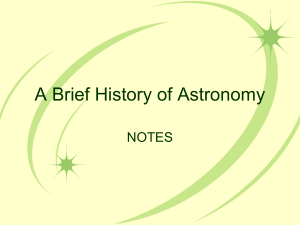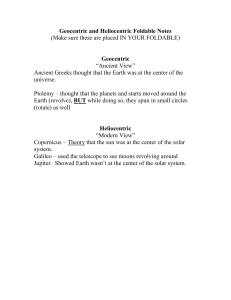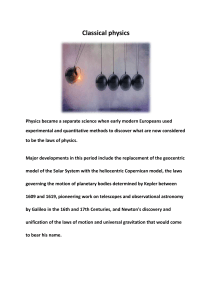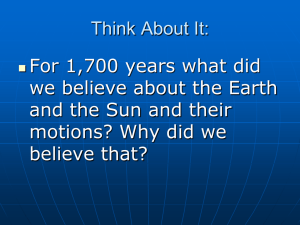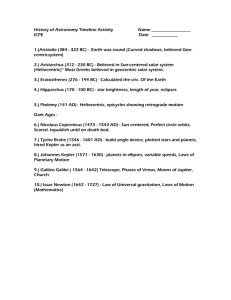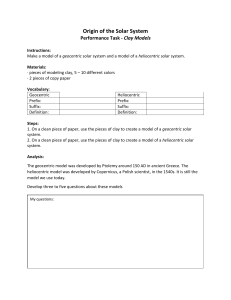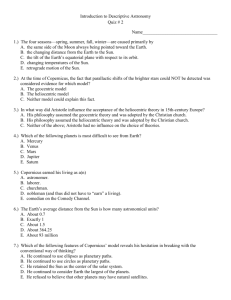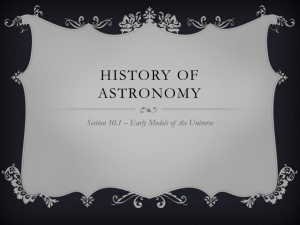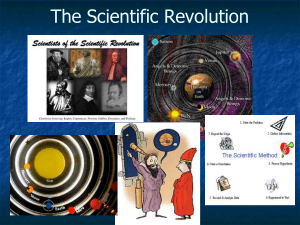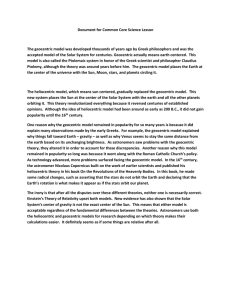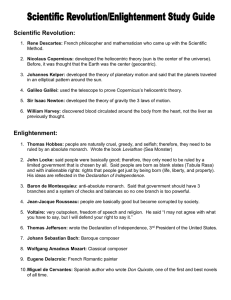Scientific Revolution Notes: Copernicus, Galileo, Newton
advertisement
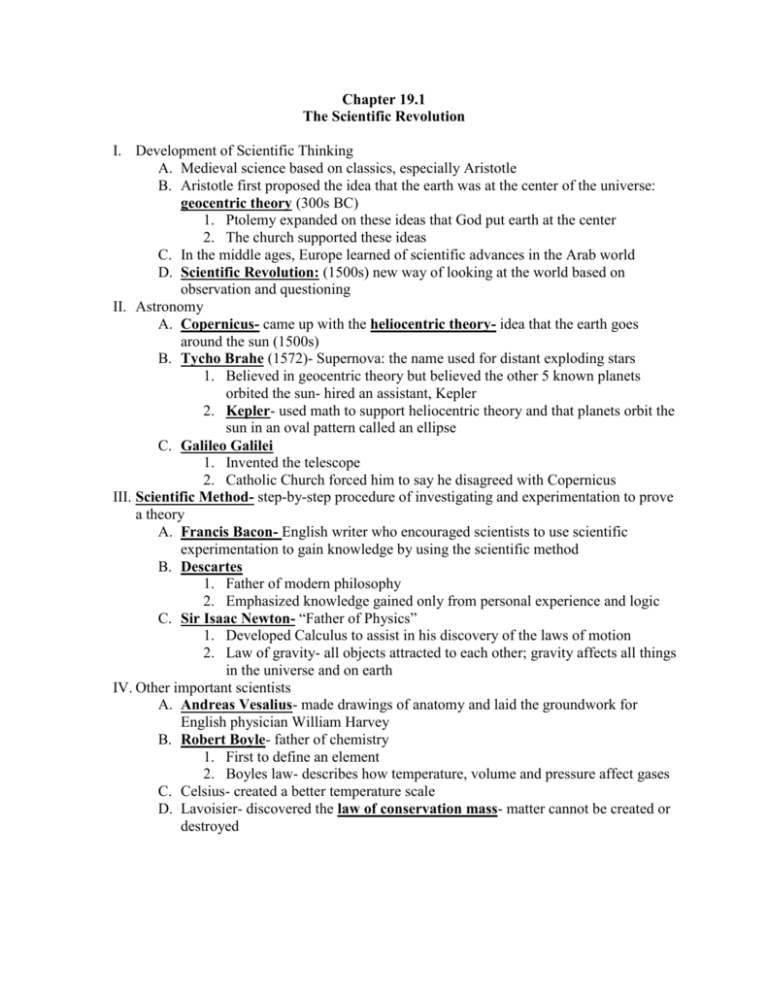
Chapter 19.1 The Scientific Revolution I. Development of Scientific Thinking A. Medieval science based on classics, especially Aristotle B. Aristotle first proposed the idea that the earth was at the center of the universe: geocentric theory (300s BC) 1. Ptolemy expanded on these ideas that God put earth at the center 2. The church supported these ideas C. In the middle ages, Europe learned of scientific advances in the Arab world D. Scientific Revolution: (1500s) new way of looking at the world based on observation and questioning II. Astronomy A. Copernicus- came up with the heliocentric theory- idea that the earth goes around the sun (1500s) B. Tycho Brahe (1572)- Supernova: the name used for distant exploding stars 1. Believed in geocentric theory but believed the other 5 known planets orbited the sun- hired an assistant, Kepler 2. Kepler- used math to support heliocentric theory and that planets orbit the sun in an oval pattern called an ellipse C. Galileo Galilei 1. Invented the telescope 2. Catholic Church forced him to say he disagreed with Copernicus III. Scientific Method- step-by-step procedure of investigating and experimentation to prove a theory A. Francis Bacon- English writer who encouraged scientists to use scientific experimentation to gain knowledge by using the scientific method B. Descartes 1. Father of modern philosophy 2. Emphasized knowledge gained only from personal experience and logic C. Sir Isaac Newton- “Father of Physics” 1. Developed Calculus to assist in his discovery of the laws of motion 2. Law of gravity- all objects attracted to each other; gravity affects all things in the universe and on earth IV. Other important scientists A. Andreas Vesalius- made drawings of anatomy and laid the groundwork for English physician William Harvey B. Robert Boyle- father of chemistry 1. First to define an element 2. Boyles law- describes how temperature, volume and pressure affect gases C. Celsius- created a better temperature scale D. Lavoisier- discovered the law of conservation mass- matter cannot be created or destroyed
